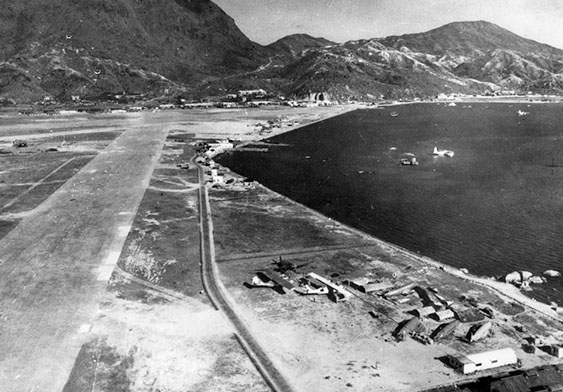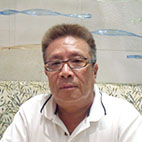
Kai Tak Airport in the early post-war period
During its early days, Kai Tak Airport served both civilian and military purposes, providing a large number of jobs to Nga Tsin Wai villagers. This photo was taken in 1947-Hong Kong Memory Website
Kai Tak Airport in the early post-war period
During its early days, Kai Tak Airport served both civilian and military purposes, providing a large number of jobs to Nga Tsin Wai villagers. This photo was taken in 1947-Hong Kong Memory Website
The British Royal Air Force airfield offered residents the chance to earn a living abroad
The British Royal Air Force airfield offered Ng Sui Kuen's family the chance to earn a living abroad. Ng Sui Kuen’s father was a posthumous child. He had studied for 2 or 3 years in old-style private school. He joined the guerilla force during the Japanese Occupation of Hong Kong. When he was a teenager, he joined the child brigade. He had been arrested and tortured. Shortly after he was married, he started working as an attendant in the quarter at the British Royal Air Force Base in Ngau Tau Kok through referral of his neighbour Mr Fan. He earned a monthly salary of more than $100. He was responsible to serve the senior military officers ahd his boss was a British major general (a foreigner). When Ng Sui Kuen was in primary 1 and primary 2, his father used to take him to the Air Force quarter on Sundays. He would play with the British militaries’ children who were of his age. They would eat sandwiches and potato chips together. When the major general was aware that his father had many children to support, he worried that he might be unable to support the family. So, he sent a referral letter to the Immigration Department and applied for approval to work in Britain on behalf of his father. The major general’s letter was effective. Shortly afterwards, his father bought an air ticket and left Hong Kong for Britain.


 BACK
BACK  CLOSE
CLOSE 